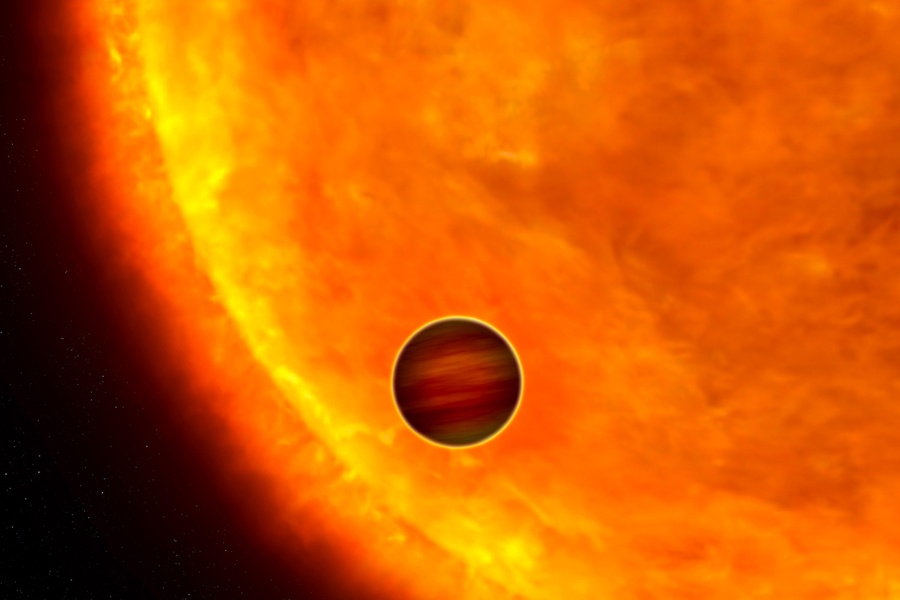
Ultrahot Jupiters are even more extreme.
All those observations confirmed that TOI-2109b is a rare and unusual planet.
(The previous record-holder has an 18-hour orbit.) The planet is about five times more massive than our own Jupiter, and it orbits an F-type star about 1.5 times more massive than our Sun.
It’s difficult to imagine what this arrangement would look like to any observer in the same system.
The planet is so hot because it’s an average of only 2.4 million km (1.5 million mi) from its star.It’s probably tidally locked to its star like other Hot Jupiters and Ultrahot Jupiters.
TOI-210 b’s extreme nature helps confirm the status of Ultrahot and Hot Jupiters as one of the most extreme types of exoplanets.“Ultrahot Jupiters such as TOI-2109b constitute the most extreme subclass of exoplanet,” Wong says?“How does a planet as massive and large as Jupiter reach an orbit that is only a few days long.
Finding extreme and unusual exoplanets teaches us a lot about the range of planet types out there.But Ultrahot Jupiters like TOI-2109b can teach us a lot about planets at their most extreme and about planet-star interactions that we can’t study in our Solar System!
“While future advances in telescope capabilities will allow for comparably in-depth explorations of smaller and cooler exoplanets, ultrahot Jupiters will continue to be among the most fruitful candidates for impactful efforts at characterization, providing crucial insights into the nature of planets at their most extreme,” the authors write.